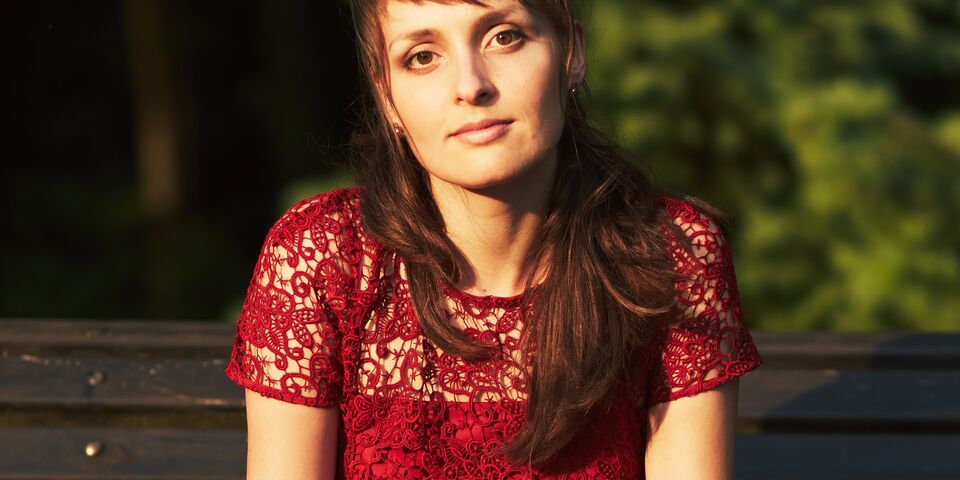Life after TU/e | Iryna Snihir
What happens to international students after they graduate from TU/e? Do they go job hunting in the Netherlands, pack their bags and explore the world, or return to their home countries? International TU/e graduates talk about their lives after TU/e. In this Cursor: Iryna Snihir.
Name: Iryna Snihir
Place of Birth: Minsk, Belarus
At TU/e: September 2003 - November 2006, Research Assistant at EURANDOM / Master program Industrial and Applied Mathematics (Department of Mathematics and Computer Science)
Current position: Treasury Funding Management professional at Van Lanschot Bankiers
What do you do at your current job?
I advise the senior management on (re)financing needs focusing on capital markets products, from senior unsecured to secured debt, including structured debt products such as asset securitizations and covered bonds. With over eight years of experience in banking, quantitative modeling and research, project management and consulting, I have been providing qualitative insights and quantitative solutions of complex matters in treasury funding and risk management.
How did you obtain your current position?
After having taken a research-oriented route at TU/e, I wanted to work with real applied problems. In 2006, right after having graduated from university, I was offered a very interesting opportunity at Rabobank as quantitative risk analyst. It happened really fast and without any problems. Gaining experience there, I moved to the world of private banking after several years. As a Risk Manager at Van Lanschot Bankiers I had a key role in the development of sophisticated internal credit risk models. At the moment I am a Treasury Funding Management professional.
Why did you choose to go to TU/e?
Having graduated from Belarus State University with honors and having obtained quite many offers for a research position from different universities worldwide, including TU/e, I was puzzled what to choose. In 2003, a European Commission report ranked TU/e at third place among all European research universities. That ranking brought me here, but also the onsite interview at Eurdandom that sparked a major interest in the subject matter.. I started working in the joint project of Eurandom, TU/e and Philips focusing on the development of statistical methods applicable for the online identification and adaptation of the battery state-of-charge.
How do you reflect on your time at TU/e?
It was a great time. Coming from the parents’ house, I was so lucky to find myself in a very warm place, and that warmth was definitely coming from my colleagues’ and new friends’ attitudes, hospitality, and their willingness to help, workwise and personally. I would like to express my gratitude to my supervisors, William Rey, Evgeny Verbitskiy, Peter Notten, Laurie Davies and Alessandro Di Bucchianico. It was also in that period I learned how to handle the Dutch’ straightforward style of communicating; I took criticism when it was necessary, and at the same time I was strongly encouraged by the people around me. I have benefited hugely from the ability of my supervisors to come up with (and solve) new and challenging problems. It’s something I’ve taken with me and use in my professional life today. But I’d like to refer to Dr Seuss: “Don’t cry because it’s over, smile because it happened”.
What advice would you give current students?
The experience and the words of Winston Churchill, who said: “Success is not final, failure is not fatal: it is the courage to continue that counts”. Especially at university, or in the process of finding a job, there are always ups and downs. So, please, invest in your courage and knowledge, because they will always pay you the best interest!


Discussion